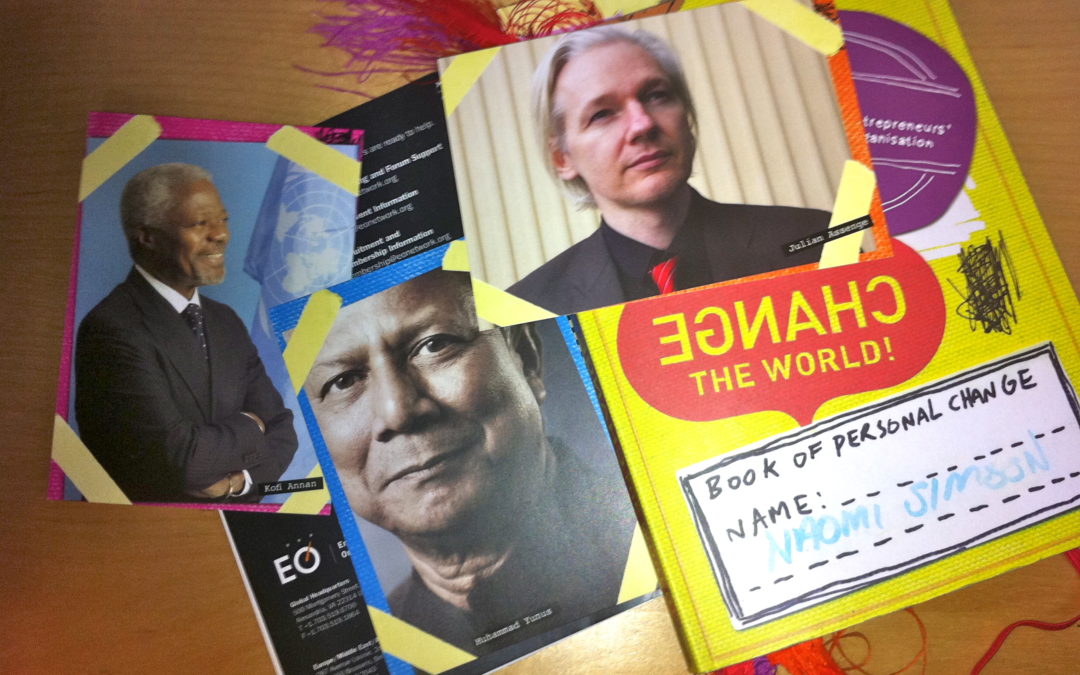“Life is about being more – not having more.”
I find myself sitting in Amsterdam in a room with 500 other entrepreneurs (I’d never been to Holland before). The energy in the room is effervescent. Suddenly the group is hushed as if we are ‘one being’. There is a Nobel Peace Prize winner on the stage. All of us are instantly humbled. Over 4 days we will have access to some of the most amazing minds on the planet. From Nobel Peace Prize winners Kofi Annan and Muhammad Yunis; to Juliann Assange – Wikileaks (via link from house arrest) and Peter Bakker former global leader of TNT now President World Business Council Sustainability Development. Inventor of the year; Joshua Silver and futurist Peter Schwartz. As well as business people such as CEO of Zappos Jenn Lim and Ricardo Semler. This event was special; short, sharp ideas creating bigger conversations…
My challenge now of course is how to share this great number of ideas in bite sized pieces. Perhaps one speaker at a time – or maybe one theme at a time. The one thing that was paramount from every speaker is; that there has never been a time in history where the need for leadership in our economy, energy management, food production and climate has been greater… and maybe it is up to the entrepreneurs to do something about these things – because clearly governments are so focused on being reelected that they don’t have ‘time’ to act on the longer term issues.
Muhammad Yunis – Explained to us that two thirds of the worlds population is denied banking services. Yet in 1974 as a young professor of economics he could not understand why thousands of people in his home country of Bangladesh where dieing from malnutrition. He went to the village outside the university where he taught and discovered that people were being held as relative ‘slaves’ to loan sharks. He asked 42 people how much they owed; and in total it was $27. He paid the money to those 42 people so they could repay their debts and could be free of the loan sharks. But he asked the question why, for so little could he make such a big difference to 42 families? The reality is that without personal assets a regular bank is unlikely to give an individual living in poverty a loan. This was when he invented the concept of micro loans. “The poorer the better” he says. Now the bank he established (which is owned by it’s customers – he has not a single share) has 8.5 million customers, effecting 45 million people, which is a third of the Bangladeshi population. They lend 1.5 billion a year – 97% of which is to women and 99% of which gets repaid. – The bank has 2600 branches, which takes deposits and lends funds like any other bank. It is a social business – no dividend will ever be paid to the shareholders.
Since then Mr Yuris has created many businesses – not one of which he has a share in – but all solving a problem. “I create companies to solve a problem – not to make a profit.” He explained. “We have to change the way we view our systems – our economic theories are built on selfishness – whilst we need to use selflessness to solve the problems of the world. If you cannot share – you cannot multiply either.”
“These things are not easy. If it is easy – who cares? Ask yourself tough questions that really take something to answer. When you focus on making money you cannot focus on solving problems – yet we are happy when we solve problems.”
“Trust breeds trust. Yet most institutions are built on distrust – with contracts and lawyers.”
“A social business is not a charity nor is it about fundraising (which is very expensive to do) it is about being self sustaining.”
He left us with the idea that “Life is about being more – not having more.”
Mr Yunis – seems a humble man – quiet in speech, but big in asking hard questions. We know the planet is a far better place because he asks those questions. But there was a clear and loud message for each of the entrepreneurs in the room. “Do we ask big enough questions?” And that starts with our own world, our families, businesses and communities. What is there right in front of us that we ‘put up with’ when we could challenge the status quo to make such a difference. Mr Yunis was an academic who looked out his window to his community and started asking questions to challenge the notion that things don’t have to stay the same.

